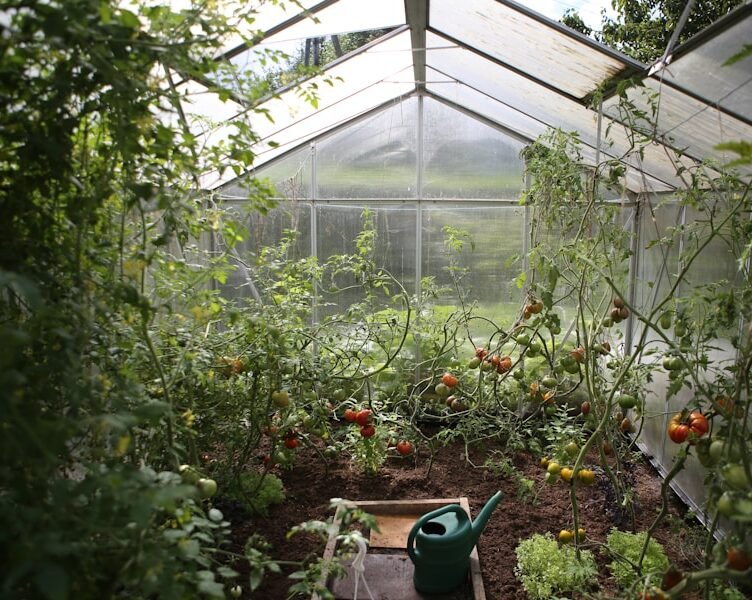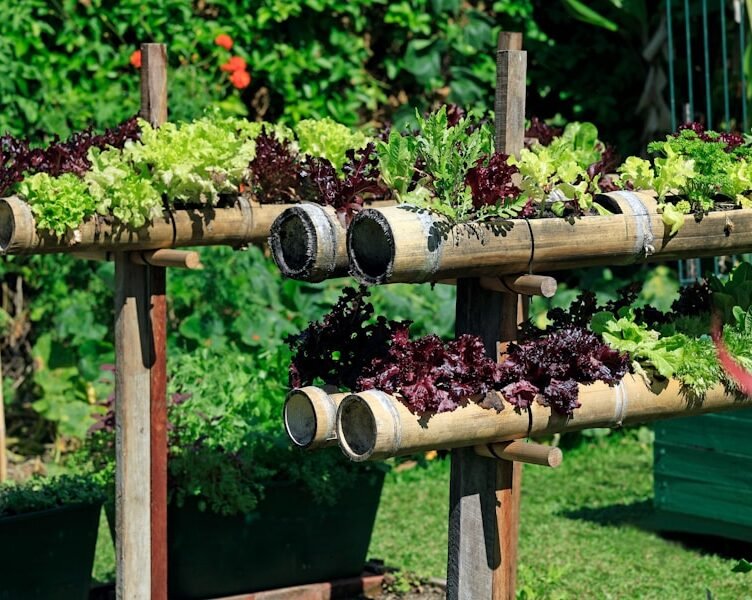Indoor vegetable gardening offers a plethora of health benefits for individuals and families. By growing your own vegetables indoors, you have complete control over the growing process, ensuring that your produce is free from harmful pesticides and chemicals. This means that you can enjoy fresh, organic vegetables that are packed with essential nutrients and vitamins, promoting overall health and well-being.
Additionally, indoor vegetable gardening allows you to have access to a wide variety of vegetables, giving you the opportunity to incorporate a diverse range of nutrients into your diet. This can lead to improved immune function, increased energy levels, and better overall health. Furthermore, indoor vegetable gardening can also be a great way to encourage children to eat more vegetables.
By involving them in the growing process, they can develop a greater appreciation for fresh produce and are more likely to eat the vegetables they have helped to grow. This can lead to healthier eating habits and a reduced risk of childhood obesity and related health issues. Overall, indoor vegetable gardening can have a significant impact on the health and well-being of individuals and families, making it a worthwhile endeavor for anyone looking to improve their overall health.
Key Takeaways
- Indoor vegetable gardening provides year-round access to fresh veggies, ensuring a constant supply of nutritious produce.
- Growing vegetables indoors promotes health by providing access to fresh, pesticide-free produce that is rich in vitamins and minerals.
- Indoor vegetable gardening is a sustainable practice that reduces the carbon footprint associated with transporting and packaging produce.
- By growing vegetables indoors, individuals can save money on grocery bills and reduce their reliance on store-bought produce.
- Indoor vegetable gardening is a practical solution for urban living, allowing individuals to cultivate their own food in limited space.
Sustainability of Indoor Vegetable Gardening
Indoor vegetable gardening is also a sustainable practice that can have a positive impact on the environment. By growing your own vegetables indoors, you are reducing the demand for commercially grown produce, which often requires large amounts of water, pesticides, and transportation. This can help to reduce your carbon footprint and lessen the environmental impact of food production.
Additionally, indoor vegetable gardening allows you to make use of recycled materials for containers and pots, reducing waste and promoting sustainability. Furthermore, indoor vegetable gardening can also help to conserve water, as it typically requires less water than traditional outdoor gardening. This can be especially beneficial in areas where water is scarce or during times of drought.
By growing your own vegetables indoors, you are contributing to the conservation of natural resources and promoting sustainable living practices. Overall, indoor vegetable gardening is a sustainable way to produce fresh, healthy food while minimizing the environmental impact of food production.
Cost Savings of Indoor Vegetable Gardening
In addition to the health and sustainability benefits, indoor vegetable gardening can also lead to significant cost savings for individuals and families. By growing your own vegetables indoors, you can reduce your grocery bill by producing your own fresh produce at a fraction of the cost of store-bought vegetables. This can lead to substantial savings over time, especially for families who consume a large amount of vegetables on a regular basis.
Furthermore, indoor vegetable gardening allows you to make use of recycled materials for containers and pots, reducing the need to purchase expensive gardening supplies. This can further reduce the cost of indoor vegetable gardening and make it an affordable option for individuals and families on a budget. Overall, indoor vegetable gardening can be a cost-effective way to produce fresh, healthy food while saving money on grocery expenses.
Year-Round Access to Fresh Veggies
| Benefits | Details |
|---|---|
| Health | Access to fresh, nutritious vegetables all year round |
| Sustainability | Reduction of carbon footprint by growing food at home |
| Savings | Cost-effective way to have a constant supply of veggies |
One of the greatest benefits of indoor vegetable gardening is the ability to have year-round access to fresh vegetables. Unlike traditional outdoor gardening, which is often limited by seasonal changes and weather conditions, indoor vegetable gardening allows you to grow produce throughout the year. This means that you can enjoy fresh, homegrown vegetables regardless of the season, providing you with a constant supply of nutritious and delicious produce.
Additionally, having year-round access to fresh vegetables can also help to reduce your reliance on store-bought produce, which is often shipped long distances and may not be as fresh or nutritious as homegrown vegetables. By growing your own vegetables indoors, you can ensure that you always have access to high-quality, fresh produce that is packed with essential nutrients and vitamins. This can lead to improved health and well-being for you and your family, making indoor vegetable gardening a valuable investment in your overall health.
Tips for Successful Indoor Vegetable Gardening
While indoor vegetable gardening offers numerous benefits, it does require some knowledge and effort to be successful. To ensure that your indoor vegetable garden thrives, it’s important to follow some key tips for successful indoor gardening. First, it’s essential to choose the right location for your indoor garden, ensuring that your plants receive adequate sunlight and are protected from drafts and temperature fluctuations.
Additionally, it’s important to select the right containers and soil for your plants, as well as provide them with proper watering and fertilization. Furthermore, it’s important to choose the right vegetables for indoor gardening, selecting varieties that are well-suited for indoor growing conditions. Some popular choices for indoor vegetable gardening include tomatoes, peppers, lettuce, and herbs such as basil and parsley.
By choosing the right plants for your indoor garden, you can increase your chances of success and enjoy a bountiful harvest of fresh produce. Overall, following these tips for successful indoor vegetable gardening can help you create a thriving indoor garden that provides you with an abundant supply of fresh, healthy vegetables.
Environmental Impact of Indoor Vegetable Gardening
In addition to the sustainability benefits of indoor vegetable gardening, it’s also important to consider the broader environmental impact of this practice. By growing your own vegetables indoors, you are reducing the demand for commercially grown produce, which often requires large amounts of water, pesticides, and transportation. This can help to reduce your carbon footprint and lessen the environmental impact of food production.
Additionally, indoor vegetable gardening allows you to make use of recycled materials for containers and pots, reducing waste and promoting sustainability. Furthermore, indoor vegetable gardening can also help to conserve water, as it typically requires less water than traditional outdoor gardening. This can be especially beneficial in areas where water is scarce or during times of drought.
By growing your own vegetables indoors, you are contributing to the conservation of natural resources and promoting sustainable living practices. Overall, indoor vegetable gardening is a sustainable way to produce fresh, healthy food while minimizing the environmental impact of food production.
Indoor Vegetable Gardening: A Solution for Urban Living
For individuals living in urban areas or apartments with limited outdoor space, indoor vegetable gardening can be a valuable solution for producing fresh produce in a confined environment. By utilizing windowsills, balconies, or small indoor spaces, urban dwellers can create thriving indoor gardens that provide them with a constant supply of fresh vegetables. This can be especially beneficial for individuals who may not have access to a traditional outdoor garden but still want to enjoy the benefits of growing their own food.
Additionally, indoor vegetable gardening can also be a great way for urban dwellers to connect with nature and experience the satisfaction of growing their own food. By creating an indoor garden, individuals living in urban areas can enjoy the therapeutic benefits of gardening while also producing their own fresh produce. This can lead to improved mental well-being and a greater sense of connection to the natural world.
Overall, indoor vegetable gardening is a valuable solution for urban living that allows individuals to produce their own fresh vegetables in limited spaces. In conclusion, indoor vegetable gardening offers numerous benefits for individuals and families, including improved health, sustainability, cost savings, year-round access to fresh veggies, and a solution for urban living. By growing your own vegetables indoors, you can enjoy fresh, organic produce that is packed with essential nutrients and vitamins while reducing your carbon footprint and promoting sustainable living practices.
Additionally, indoor vegetable gardening can lead to significant cost savings on grocery expenses while providing year-round access to fresh vegetables regardless of seasonal changes or weather conditions. With some knowledge and effort, individuals can create thriving indoor gardens that provide them with an abundant supply of fresh, healthy vegetables while promoting overall health and well-being. Overall, indoor vegetable gardening is a valuable practice that offers numerous benefits for individuals and families looking to improve their health and reduce their environmental impact while enjoying the satisfaction of growing their own food.
FAQs
What are the benefits of indoor vegetable gardening?
Indoor vegetable gardening allows for fresh, homegrown produce all year round, regardless of the weather. It also promotes sustainability by reducing the need for transportation and packaging of store-bought produce. Additionally, indoor vegetable gardening can lead to cost savings on grocery bills.
What are the health benefits of indoor vegetable gardening?
Indoor vegetable gardening provides access to fresh, nutrient-rich produce, which can contribute to a healthier diet. Growing your own vegetables also allows you to avoid pesticides and other chemicals commonly used in commercial farming.
What are the sustainability benefits of indoor vegetable gardening?
Indoor vegetable gardening reduces the carbon footprint associated with transporting and packaging store-bought produce. It also promotes sustainable practices by using less water and energy compared to traditional outdoor farming.
How can indoor vegetable gardening lead to cost savings?
By growing your own vegetables indoors, you can reduce your reliance on store-bought produce, leading to potential cost savings on grocery bills. Additionally, indoor vegetable gardening can be a cost-effective way to access fresh produce, especially in areas with limited access to affordable, high-quality vegetables.





